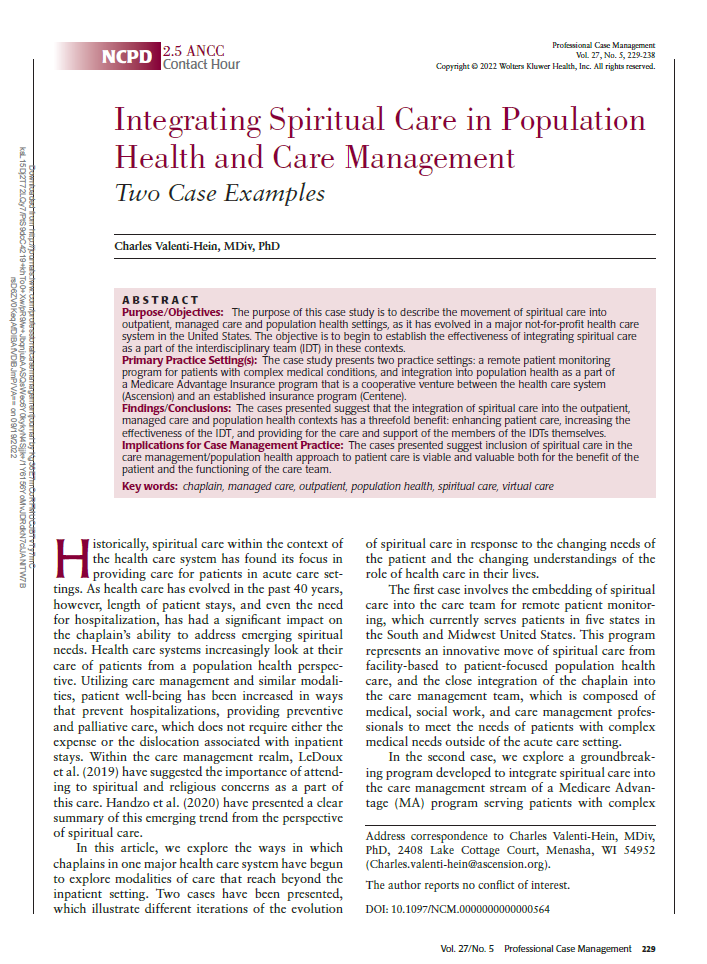Headline
Including spiritual care within care management programs in outpatient, managed care, and population health settings can enhance patient care and support the effectiveness of the interdisciplinary care team.
Context
While health systems often provide spiritual care in inpatient settings, patients with complex health and social needs may also benefit from spiritual care in other contexts, such as in population health management, managed care, or outpatient care. These case studies describe how spiritual care has been integrated into interdisciplinary care teams within two programs for patients with complex medical needs: (1) a remote patient monitoring program within a health care delivery system; and (2) a Medicare Advantage care management program.
Findings
Each case study includes descriptions of how patients were identified to receive spiritual care, a patient narrative focused on the role and perceived impact of spiritual care, and care manager perspectives on spiritual care services provided by chaplains. These case studies outline the potential benefits of spiritual care for patients with and without religious affiliations, and for care team members. Implementation of spiritual care more broadly will benefit from better measures to assess impact, tools to identify patients with spiritual needs, and more evidence about the efficacy and optimal duration of these services.
Takeaways
While spiritual care has not been widely implemented in population health and care management programs, the promising approaches featured here – including in-person and remote interventions – can help other stakeholders design innovative programs that integrate chaplains into interdisciplinary care teams.


